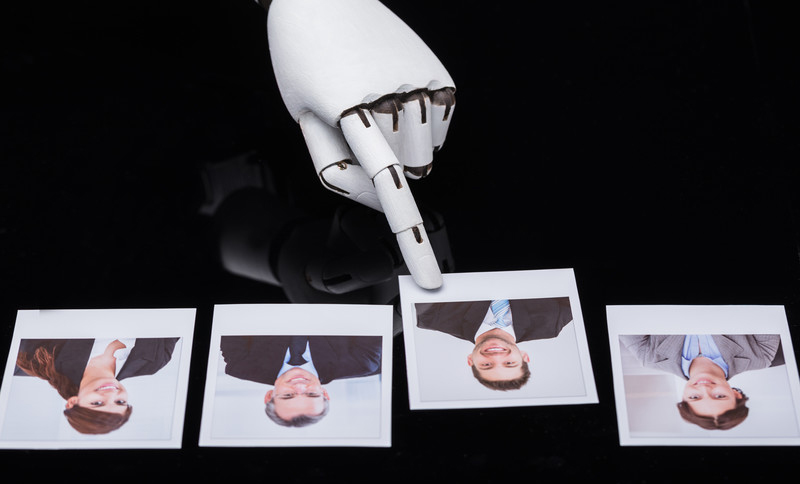While job interviews are a challenge for candidates, HR managers find the process daunting too as they have to determine if the person is a good fit for the job. Video interviews have become a favored option in recent years. Recording live interviews and getting them documented by a video transcription service provider helps recruiters find the right candidates. Today, AI-powered interviews are making this task easier by analyzing candidates’ facial expressions and other data during job interviews.

In addition to educational qualifications, knowledge and technical skills or “hard skills” necessary to do the job, HR managers need to assess candidates’ “soft skills” – the set of abstract qualities and social attributes that go to make up their personality and will make them a good employee. The fact is that candidates who have top notch hard skills are the wrong choice if they turn out to be difficult to get along with, unmotivated, or insincere. Further, there is always the risk of a bad hire because of the bias of a human recruiter, according to an article in the Economic Times. AI is the latest tactic companies are using to make the right hire.
Employers are using AI to for predictive pre-employment assessments in various ways. A recent CNBC report discusses how chatbots are used to answer applicants’ questions and also for recruiting. Bots can track applicants’ progress through the application phase and also analyze their responses to questions. Mya Systems, an online job board for millennials, is named after its recruiting assistant designed to provide a seamless interview experience. Mya directly interacts with candidates via text, asking basic questions such as start date and salary requirements. Mya also answers candidates’ questions, and reverts to the recruiter if she doesn’t know the answer. This recruiting assistant vets candidates based on a preprogrammed assessment model and then moves them to the next phase in the interview process. A survey revealed that 73% of candidates who had spoken with Mya thought they had interacted with a human recruiter.
Another AI-powered video interview bot, AutoView can assess and rate the candidate’s body language, facial expressions, and voice emotions during the interview, without any bias. Chatbots also check and screen resumes using the existing employee database, high potential and high performing employee data, and so on. Resumes that do not meet requirements are not up to par are separated from those that have the desired skills. Entelo’s recruitment software analyzes a candidate’s social media presence to determine their fit for a position.
In an AI-powered video interview, a candidate is given a series of questions to answer. The visually recorded responses are sent to the video hiring-tool company which analyzes the content of the interviews, including the facial features and voice of the candidate to possibly determine even the candidate’s integrity and honesty.
HireVue and Montage are well-known providers of AI processes to help employers vet candidates. HireVue reports that, according to the Talent Board 2016 Candidate Experience Research Report, pre-employment tests are on the rise:
- 82% of companies are using a pre-employment assessment test
- 62% are using ability or cognitive testing to test candidate’s job-related abilities
- 54% are using job simulations to test candidate’s performance potential (up 50% from 2014)
- 51% are using assessment tests to gauge a candidate’s cultural fit (up 22% from 2014)
- 47% are using assessments to evaluate a candidate’s personality.
HireVue offers an employer- and candidate-friendly AI-powered video interview experience. Their proprietary machine learning algorithms collect and analyze up to 25,000 data points in interviews, including verbal response, intonation, and nonverbal communication to accurately predict a potential employee’s skills, fit and future job performance. After selecting what appear to be the best matches, HireVue returns them to the human recruiter, along with the AI’s assessment of each candidate. Dunkin Donuts, IBM, Carnival Cruise Lines, Unilever, The Boston Red Sox, Singapore Airlines, and Mount Sinai are among the companies that use HireVue’s services.
The benefits of the AI-powered video interview over the traditional interview process are:
- Automated video interview with preset questions that can be done on smartphone, tablet or computer
- Quick, easy and convenient candidate-friendly experience that enhances the employer’s brand
- Measures candidates’ facial expressions to capture their moods and allow assessing personality traits
- Predictive assessments in just a few video questions created by psychology experts
- Available in multiple languages
- On-demand video allows candidates to interview any time of day
- Recruiters can review and compare dozens of interviews in a short time
- Roots out bias involved in human hiring decisions. Candidates are ranked on their performances and skills after tests and interviews are completed.
- Provides companies with a much more diverse candidate pool
- Increases the quality of hires, promotes employee satisfaction, and reduces attrition rates
A recent CNBC article notes that speakers on a panel at an MIT event said that though algorithms can help HR professionals make smart hiring decisions, these algorithms can often be biased against minorities. The biases occur because human bias influenced the algorithm, and it’s up to humans to detect the bias and fix it. Unless implemented responsibly, the use of advanced algorithms and AI in recruiting can have drastic and harmful effects for job candidates, says an expert. Given these concerns, conventional online video interviews and digital transcription services will continue to be reliable recruitment strategies for some time to come.



